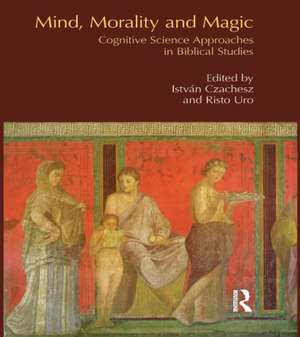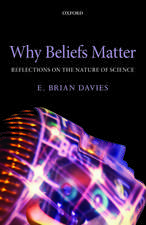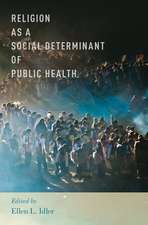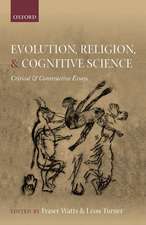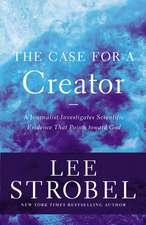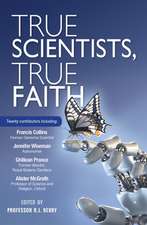Mind, Morality and Magic: Cognitive Science Approaches in Biblical Studies
Autor Istvan Czachesz, Risto Uroen Limba Engleză Hardback – sep 2013
Preț: 851.41 lei
Preț vechi: 1217.99 lei
-30% Nou
Puncte Express: 1277
Preț estimativ în valută:
162.91€ • 170.11$ • 134.53£
162.91€ • 170.11$ • 134.53£
Carte tipărită la comandă
Livrare economică 15-29 aprilie
Preluare comenzi: 021 569.72.76
Specificații
ISBN-13: 9781844657339
ISBN-10: 1844657337
Pagini: 324
Ilustrații: illustrations
Dimensiuni: 156 x 234 x 36 mm
Greutate: 0.66 kg
Ediția:New.
Editura: Taylor & Francis
Colecția Routledge
Locul publicării:Oxford, United Kingdom
ISBN-10: 1844657337
Pagini: 324
Ilustrații: illustrations
Dimensiuni: 156 x 234 x 36 mm
Greutate: 0.66 kg
Ediția:New.
Editura: Taylor & Francis
Colecția Routledge
Locul publicării:Oxford, United Kingdom
Cuprins
Preface 1. The Cognitive Science of Religion: A New Alternative in Biblical Studies, Istvan Czachesz & Risto Uro 2. Past Minds: Evolution, Cognition and Biblical Studies, Luther H. Martin Part I: Memory and the Transmission of Biblical Traditons 3. How Religions Remember: Memory Theories in Biblical Studies and in the Cognitive Study of Religion, Petri Luomanen 4. Rethinking Biblical Transmission: Insights from the Cognitive Neuroscience of Memory, Istvan Czachesz 5. The Interface of Ritual and Writing in the Transmission of Early Christian Traditions, Risto Uro 6. Computer Modeling of Cognitive Processes in Biblical Studies: The Primacy of Urban Christianity as a Test Case, Istvan Czachesz & Anders Lisdorf 7. "I was El Shaddai, but now I'm Yahweh": God Names and the Informational Dynamics of Biblical Texts, Gabriel Levy Part II: Ritual and Magic 8. Is Judaism Boring? On the Lack of Counterintuitive Agents in Jewish Rituals, Tamas Biro 9. Ritual System in the Qumran Movement: Frequency, Boredom and Balance, Jutta Jokiranta 10. A Cognitive Perspective on Magic in the New Testament, Istvan Czachesz 11. From Corpse Impurity to Relic Veneration: New Light from Cognitive and Psychological Studies, Risto Uro Part III: Altruism, Morality, and Cooperation 12. Why Do Religious Cultures Evolve Slowly? The Cultural Evolution of Cooperative Calling and the Historical Study of Religions, Joseph Bulbulia, Quentin Atkinson, Russell Gray & Simon Greenhill 13. Empathy and Ethics: Bodily Emotion as Basis for Moral Admonition, Thomas Kazen 12. A Socio-Cognitive Perspective on Identity and Behavioral Norms in Ephesians, Rikard Roitto 13. Emotion, Cognition, and Social Change: A Consideration of Galatians 3:28, Colleen Shantz Notes Bibliography
Recenzii
'...the editors and contributors have succeeded in publishing a highly readable, introductory volume with practical case studies, which can be recommended to anyone interested in delving deeper into the description of scientific tools pertinent to the study of historical ideas and beliefs.' – Vojtěch Kaše, University of Helsinki, Finland and Masaryk University, Czech Republic in Journal of Cognitive Historiography
Descriere
This volume explores how cognitive approaches to religion can shed light on classical concerns in biblical scholarship as well as uncover new questions and offer new methodologies.
